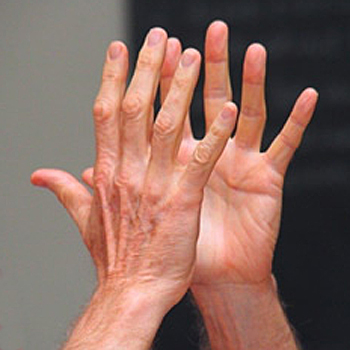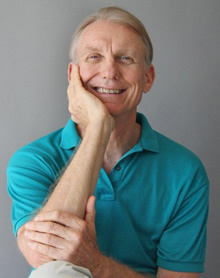Introduction to Biodynamic Cardiovascular Therapy:
Working Heart to Heart
with Michael J. Shea, PhD
July 14-16, 2017 | Friday-Sunday, 9:30am-5:30pm | 21 CE contact hours | $450
NOTE: This seminar will provide an entry point for those new to craniosacral therapy, and will provide a new treatment paradigm for those already practicing craniosacral therapy.
Biodynamic Cardiovascular Therapy is a new paradigm in craniosacral therapy. A cardiovascular approach is to feel the health of the heart and vascular system in one’s self and the client with Primary Respiration* and stillness. Cardiovascular work is about delicate palpation skills. In this class, students will learn how and when to blend all previous learning in craniosacral therapy for the most effective treatment for the client.
This course builds the framework for the biodynamic cardiovascular approach to craniosacral therapy. We will cultivate the resources of mindfulness and perceptual-touch needed for sensing both deep metabolism of the autonomic nervous system and cardiovascular physiology. A dynamic new palpation skill to contact the entire vascular system will be taught.
 The following arteries will be studied and palpated biodynamically: The radial artery, the anterior and posterior tibial arteries, and the subclavian artery. The principle of practice with the cardiovascular system is to work with the peripheral arteries first before contact with the heart at the center. A specific protocol will be taught to integrate into the practitioner’s clinical practice.
The following arteries will be studied and palpated biodynamically: The radial artery, the anterior and posterior tibial arteries, and the subclavian artery. The principle of practice with the cardiovascular system is to work with the peripheral arteries first before contact with the heart at the center. A specific protocol will be taught to integrate into the practitioner’s clinical practice.
- Learning the stages of blood-heart development
- Palpating and treating the cardiovascular system
- Sensing the relationship of structure and function in the body
- Refining orientation to biological slowness and stillness for healing
* Primary Respiration is defined as the long tide in craniosacral therapy. It is one of the three tidal movements that craniosacral therapists work with in clinical practice. The other two are the cranial rhythmic impulse and the mid tide. It was first discovered by the great osteopathic physician William Garner Sutherland, and incorporated into clinical practice because of the therapeutic benefits when both the practitioner and client access a slow rhythm in their nervous system – such as Primary Respiration.
 Michael J. Shea is one of the preeminent educators and authors in the fields of craniosacral therapy, somatic psychology and myofascial release. He presents seminars throughout the United States, Canada and Europe. He received his master’s degree in Buddhist Psychology at Naropa University and a doctorate in Somatic Psychology at The Union Institute. Dr. Shea was certified in 1986 as one of the first Full Instructors of CranioSacral Therapy by the Upledger Institute and was an advanced Rolfer for 20 years. He is currently adjunct faculty and teaches human embryology in the pre and perinatal psychology doctoral programs at the Santa Barbara Graduate Institute in California.
Michael J. Shea is one of the preeminent educators and authors in the fields of craniosacral therapy, somatic psychology and myofascial release. He presents seminars throughout the United States, Canada and Europe. He received his master’s degree in Buddhist Psychology at Naropa University and a doctorate in Somatic Psychology at The Union Institute. Dr. Shea was certified in 1986 as one of the first Full Instructors of CranioSacral Therapy by the Upledger Institute and was an advanced Rolfer for 20 years. He is currently adjunct faculty and teaches human embryology in the pre and perinatal psychology doctoral programs at the Santa Barbara Graduate Institute in California.
As a formal student of His Holiness the Dalai Lama, his teaching style is grounded in his spiritual practice of developing compassion with the use of manual therapy. For many years he has also apprenticed with a medicine man on the Navajo reservation in Arizona. From these traditions, he brings a unique cross-cultural perspective to teaching health and healing. Because of the influence of the Dalai Lama, his clinical focus is on treating infants and children with neurological problems and developmental delays. This also includes teaching clinical skills for adults that carry pre and perinatal trauma.
Dr. Shea is the author of a number of books, including Somatic Psychology and the five Volumes of Biodynamic Craniosacral Therapy. He has been a Florida Licensed Massage Therapist since 1976. He is a founding member of the International Affiliation of Biodynamic Trainings and served on the Massage Therapy Body of Knowledge task force (MTBOK). He makes his home in South Florida with his wife, Cathy. You can learn more about Dr. Shea’s work from his website, www.sheaheart.com, and you can also subscribe to his very informative blog.
REGISTER for a Workshop | Browse Workshops by MONTH | Browse Workshops by CATEGORY | CE Home
